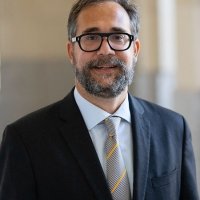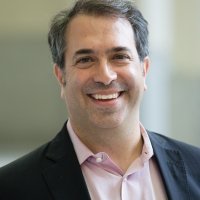Ground Truth Briefing | Venezuela: Internal Turmoil and Global Stakes

Events are unfolding at dizzying speed in Venezuela, as opposition leader Juan Guaidó has declared himself interim president, defying Nicolás Maduro and winning recognition from Washington and most neighboring countries. Meanwhile, Russia and China remain opposed to a democratic transition. Three Wilson Center programs convened a Ground Truth Briefing on the situation and its great-power implications, featuring Caracas-based Fellow Michael Penfold.
Summary and Quotes
Cynthia Arnson
"Nicolas Maduro maintains the resolute support of Russia, China, Cuba, Turkey, and others. These countries differ in their objectives and interests, but together have provided billions of dollars in loans to the Venezuelan government and to PdVSA. In the case of China, close to $60 billion. Russia has provided billions in arms, and Cuba has provided brutally effective intelligence support.”
Michael Penfold
- “Maduro completely underestimated the situation that he was stepping in when he decided to get sworn in despite the fact that the elections were considered illegitimate; and he overestimated, too, his capacities to deal with the current situation” (5:31). He underestimated:
- The ability of the opposition to consolidate under the new leadership of interim president Juan Guaidó, who now enjoys 80 percent support;
- The extent of the increase in international pressure that he would face;
- His own inability to get chavismo to rally around him, given that people are very tired of the social and economic crisis;
- The impact of hyperinflation, which will reach 10 million percent this year, on popular sectors, which has resulted in heightened protests. (8:42)
- “I’ve never seen a democratic transition that is being crafted around a National Assembly…that’s a very distinct element and one that has also allowed the international community to recognize Guaidó, because at the end Guaidó is the reflection of the only democratic and legitimate institution left in the country.” (9:47)
- Key factors going forward:
-
The top military brass are so far still loyal, but they are not acting in the same way as before. The use of the special police, the FAES, as opposed to the military, indicates that the role of the armed forces is changing. (10:29)
-
Time is an important factor and it is not clear that it will work against the opposition. The combined effect of sanctions is “tremendous.” 12:31)
-
There needs to be a “very clear landing place.” “Guaidó has done a tremendous job” so far with the offer of amnesty, but other elements need to be added. (14:53) The offer of amnesty is not sufficient to break the loyalty of the armed forces, as “the military is a very special and strange institution…today it’s more than an institution, it’s really a corporation,” with control of oil, mining, state enterprises, and the illegal trade. (48:05)
-
Maxim Trudolyubov
- “What Moscow is saying is that this is an attempt of a regime change initiated by the United States and Moscow, as a principled player/actor in the world, has to intervene” (19:52)
- For Putin, Venezuela is part of a bigger picture, part of a long story told to the Russian public and through state and social media, of the United States overturning regimes that are friendly to Russia, as in Ukraine. Moscow projects itself as “a white knight who comes to the rescue.” (26:00) (19:10)
- Russia’s relationship with Venezuela dates back to the early years of Hugo Chávez. There are interests of the state-owned oil company Rosneft, joint ventures, and loans estimated at $17 billion over the last ten or fifteen years. (20:17)
- The scope of Moscow’s policies and ability to interfere is limited. (22:52)
- “Moscow apparently is helping Venezuela to get cash by selling some of Venezuela’s gold reserves that apparently have travelled to Moscow on two planes. Moscow apparently will try to help Venezuela get some cash against this gold in the UAE….This is almost a big spy story thriller. Any military intervention of any kind I think is ruled out. It’s a very distant place from Moscow’s view point.” (23:17)
Stephen Kaplan
- China’s strategy is more defensive that Russia, aimed at protecting its financial commitments. (26:57). There is a tendency to group both countries together, but they are pursuing different goals.
- Whereas the narrative of Russia’s relationship is ideological, China’s is commercial, even though China also upholds the principle of non-intervention.
“China had provided more than $50 billion to the Venezuelan government,” which at one point accounted for 64 percent of China’s new loans to Latin America and accounted for more than half of Venezuela’s external financing. (29:39)
- “China is caught in a creditor trap” in which it mispriced risk. This is different than the debt trap decried by the United States. China is now playing a nuanced and defensive game to mitigate risk.
- China’s lending has gone through distinct phases. When Venezuela was already behind in its payments to China, the country asked for a debt moratorium in 2016. From 2016-18, Venezuela has only been paying interest on its debt to China.
“The fact that China is trying to protect its investments means it’s hedging both financially and politically.” (35:59)
- China courted opposition leaders during the 2012 presidential election and the 2015 assembly elections.
- This suggests that China may be more open to negotiations with Guaidó and the opposition. Guaidó has specifically reached out to China, which has more scope to negotiate than does Russia.
Speakers

Professor of Political Science, Instituto de Estudios Superiores de Administración (IESA) Business and Public Policy School, Venezuela

Associate Professor of Political Science and International Affairs, George Washington University

Editor-at-Large, Meduza
Moderator

Hosted By

Latin America Program
The Wilson Center’s prestigious Latin America Program provides non-partisan expertise to a broad community of decision makers in the United States and Latin America on critical policy issues facing the Hemisphere. The Program provides insightful and actionable research for policymakers, private sector leaders, journalists, and public intellectuals in the United States and Latin America. To bridge the gap between scholarship and policy action, it fosters new inquiry, sponsors high-level public and private meetings among multiple stakeholders, and explores policy options to improve outcomes for citizens throughout the Americas. Drawing on the Wilson Center’s strength as the nation’s key non-partisan policy forum, the Program serves as a trusted source of analysis and a vital point of contact between the worlds of scholarship and action. Read more


Kennan Institute
After more than 50 years as a vital part of the Wilson Center legacy, the Kennan Institute has become an independent think tank. You can find the current website for the Kennan Institute at kennaninstitute.org. Please look for future announcements about partnership activities between the Wilson Center and the Kennan Institute at Wilson Center Press Room. The Wilson Center is proud of its historic connection to the Kennan Institute and looks forward to supporting its activities as an independent center of knowledge. The Kennan Institute is committed to improving American understanding of Russia, Ukraine, Central Asia, the South Caucasus, and the surrounding region through research and exchange. Read more


Kissinger Institute on China and the United States
The Kissinger Institute works to ensure that China policy serves American long-term interests and is founded in understanding of historical and cultural factors in bilateral relations and in accurate assessment of the aspirations of China’s government and people. Read more
